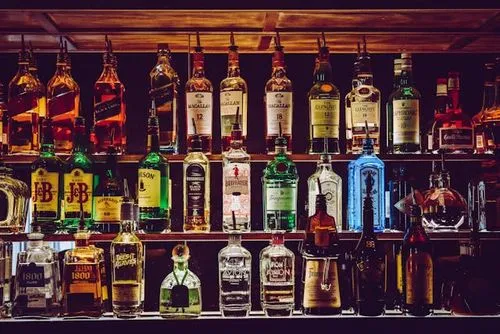The World of Party Drugs
Exploring the realms of party drugs unveils a complex landscape with nuances that extend beyond mere recreational use. Let’s delve into the definition and various types of party drugs, along with the common scenarios of their use in social settings.
Definition and Types of Party Drugs
Party drugs, also known as recreational drugs, refer to substances that are typically consumed in social settings to enhance the overall experience. These drugs are often chosen for their euphoric or mind-altering effects, leading to altered perceptions of reality and heightened sensory experiences.

Some common types of party drugs include stimulants like MDMA (Ecstasy), cocaine, and amphetamines, as well as hallucinogens such as LSD and psilocybin. Additionally, depressants like alcohol and benzodiazepines are also frequently used in social settings to induce relaxation and reduce inhibitions.
Scenarios of Use in Social Settings
The use of party drugs in social environments is a prevalent phenomenon, with individuals often turning to these substances to enhance social interactions, boost energy levels, or simply let loose and have a good time. Parties, music festivals, clubs, and raves are common settings where the use of party drugs is observed.
In social settings, the consumption of party drugs is often driven by peer influence, societal norms, and a desire for heightened experiences. However, it’s crucial to recognize that the use of these substances can have serious consequences, both in the short term and the long term. Understanding the scenarios in which party drugs are used is essential for providing accurate information and promoting harm reduction practices.
Understanding Use and Effects
Exploring the realm of party drugs delves into understanding both their immediate effects and potential long-term consequences. This section sheds light on the short-term effects experienced upon consumption and the lasting health implications associated with prolonged use.
Short-Term Effects of Party Drugs
Party drugs can induce a range of short-term effects that vary depending on the type of drug consumed. These effects often manifest swiftly after ingestion and can impact both physical and mental functioning. Here is an overview of the common short-term effects associated with party drugs:

It is crucial to recognize and understand these short-term effects to make informed decisions about drug use and prioritize personal safety in social settings.
Long-Term Risks and Health Implications
In parallel with the immediate effects, prolonged use of party drugs can pose serious long-term risks and health implications. Continuous misuse of these substances can lead to detrimental effects on physical health, mental well-being, and overall quality of life. Here are some of the common long-term risks associated with the use of party drugs:

Understanding the long-term risks and health implications of party drug use is essential for individuals to make informed decisions regarding their well-being and seek help or support when needed. By being aware of these potential consequences, individuals can take proactive steps towards harm reduction and promoting their overall health and safety.
Harm Reduction Strategies
In the realm of party drugs, prioritizing harm reduction strategies is paramount to promoting safer use and minimizing potential risks. By implementing effective harm reduction measures, individuals can enhance their awareness and make informed decisions regarding their drug use. This section delves into the significance of harm reduction and provides insights into tools and resources available for safer drug use practices.
Importance of Harm Reduction
Emphasizing the importance of harm reduction is vital in the context of party drug use. Harm reduction strategies aim to mitigate the potential negative consequences associated with drug use, focusing on minimizing harm rather than promoting abstinence. By adopting harm reduction practices, individuals can reduce the risks of overdose, addiction, and adverse health effects, ultimately promoting safer drug consumption behaviors.
Tools and Resources for Safer Use
Equipping oneself with the appropriate tools and resources for safer drug use is essential when navigating the landscape of party drugs. Several harm reduction tools and resources are available to support individuals in making informed choices and enhancing their safety while using drugs. These resources may include:

By utilizing these tools and resources, individuals can take proactive steps to reduce the harms associated with party drug use and prioritize their well-being. It is essential to stay informed, engage with harm reduction practices, and seek support when needed to promote safer drug consumption behaviors within the party drug context.
Commonly Abused Party Drugs
Exploring the realm of party drugs reveals several substances that are commonly abused in social settings. Here, we delve into the details of four prevalent party drugs: MDMA (Ecstasy), Cocaine, Ketamine, and LSD.
MDMA (Ecstasy)
MDMA, commonly known as Ecstasy, is a synthetic drug that alters mood and perception. It is classified as a stimulant and hallucinogen, inducing feelings of increased energy, pleasure, and distorted sensory experiences. The short-term effects of MDMA include heightened empathy, increased sociability, and enhanced sensory perception. However, prolonged use of MDMA can lead to serious health risks such as dehydration, hyperthermia, and serotonin syndrome.
Cocaine
Cocaine is a powerful stimulant derived from the coca plant. It produces intense euphoria, increased energy, and heightened alertness. Short-term effects of cocaine include elevated heart rate, dilated pupils, and a sense of invincibility. Chronic use of cocaine can result in severe health consequences, including cardiovascular problems, addiction, and mental health disorders.
Ketamine
Ketamine is a dissociative anesthetic that can cause hallucinations and a sense of detachment from reality. It is often abused for its sedative and hallucinogenic properties. Short-term effects of Ketamine include impaired motor function, altered perception of sight and sound, and dissociation from the environment. Continued use of Ketamine can lead to addiction, bladder problems, and cognitive difficulties.
LSD
LSD, also known as acid, is a hallucinogenic drug that alters perception, mood, and cognitive processes. It is commonly consumed in the form of small squares of paper soaked in LSD. The short-term effects of LSD include visual hallucinations, intense sensory experiences, and altered sense of time. However, LSD can also induce anxiety, paranoia, and psychosis in some individuals, especially with high doses and in unsupervised settings.
Understanding the characteristics and effects of these commonly abused party drugs is essential in promoting awareness and education about the risks associated with their use. It is crucial for individuals to approach these substances with caution and understanding of the potential harm they can cause to both physical and mental health.
Seeking Help and Support
When it comes to dealing with addiction to party drugs, recognizing the signs of addiction and knowing how to access professional help and support resources are pivotal steps towards recovery.
Recognizing Signs of Substance Dependence
It’s crucial to be aware of the signs that may indicate a person is struggling with addiction to party drugs. Some common indicators of substance dependence include:

If you or someone you know is exhibiting these signs, it’s essential to seek help and support to address the addiction and prevent further harm.
Accessing Professional Help and Support Resources
Reaching out for professional help is a crucial step in overcoming addiction to party drugs. It’s important to remember that seeking assistance is a sign of strength, not weakness. Many individuals struggle with the decision to ask for help, but it’s often the turning point in their recovery journey. Overcoming addiction is a challenging process, but with the right support, it’s entirely possible to reclaim control of your life and build a healthier future.
There are various resources available to support individuals in their journey to recovery, each offering unique approaches and levels of care tailored to individual needs:
- Addiction specialists and therapists: These professionals are trained to understand the complexities of addiction and can provide personalized treatment plans. They offer one-on-one counseling sessions to address underlying issues and develop coping strategies.
- Support groups and 12-step programs: Organizations like Narcotics Anonymous (NA) provide a supportive community of peers who understand the challenges of addiction. These groups offer a structured approach to recovery and ongoing support.
- Rehabilitation centers (both inpatient and outpatient): These facilities provide intensive treatment programs that can last from a few weeks to several months. Inpatient centers offer 24/7 care and support, while outpatient programs allow individuals to receive treatment while maintaining their daily responsibilities.
- Detoxification programs: Medically supervised detox programs help individuals safely manage withdrawal symptoms as they clear drugs from their system. This is often the first step in the recovery process.
- Holistic treatment options: These approaches focus on treating the whole person, not just the addiction. They may include yoga, meditation, acupuncture, and nutritional counseling to support overall well-being.
- Medication-assisted treatment: For some individuals, medications can be helpful in managing cravings and reducing the risk of relapse. This approach is always combined with counseling and behavioral therapies.
- Telehealth and online counseling services: These options provide convenient access to professional help, especially for those who may have difficulty attending in-person sessions due to location or other constraints.
These resources provide a range of support, from medical intervention to emotional guidance and peer support. The key is finding the right combination of help that works for each individual’s specific situation and needs. It’s also important to note that recovery is a process, and it may take time to find the most effective treatment approach.
Additionally, many communities offer local resources such as crisis hotlines, community health centers, and addiction recovery organizations. These can be valuable sources of information and support, especially when taking those first steps toward recovery.
Remember, there’s no one-size-fits-all approach to overcoming addiction. What works for one person may not work for another, so it’s essential to be patient and open-minded when exploring different treatment options. The journey to recovery may have its ups and downs, but with perseverance and the right support system, lasting change is possible.

Seeking help from these resources can provide individuals struggling with addiction to party drugs the necessary guidance, support, and treatment options to begin their journey towards recovery and a healthier, drug-free lifestyle. These resources offer a wealth of information, professional expertise, and peer support that can be invaluable during the recovery process. Many of them provide confidential services, allowing individuals to seek help without fear of judgment or stigma.
It’s important to remember that recovery is a personal journey, and what works for one person may not work for another. That’s why having access to a variety of resources is crucial. Some individuals may benefit from inpatient treatment programs, while others might find success with outpatient counseling or support groups. The key is to find the right combination of support and treatment that works for each individual’s unique situation.
Additionally, these resources often offer ongoing support, which is essential for maintaining long-term sobriety. Recovery is not just about stopping drug use; it’s about building a new, fulfilling life without substances. This process takes time, effort, and continuous support.
Remember, recovery is possible with the right support system in place. No matter how difficult the struggle with addiction may seem, there is always hope. With determination, support, and the right resources, individuals can overcome their addiction to party drugs and reclaim control of their lives. It’s never too late to seek help and start on the path to recovery.
Sources
https://www.umb.edu/health-services/advisory/party-drugs-and-substance-use/
https://pubmed.ncbi.nlm.nih.gov/20877746/




